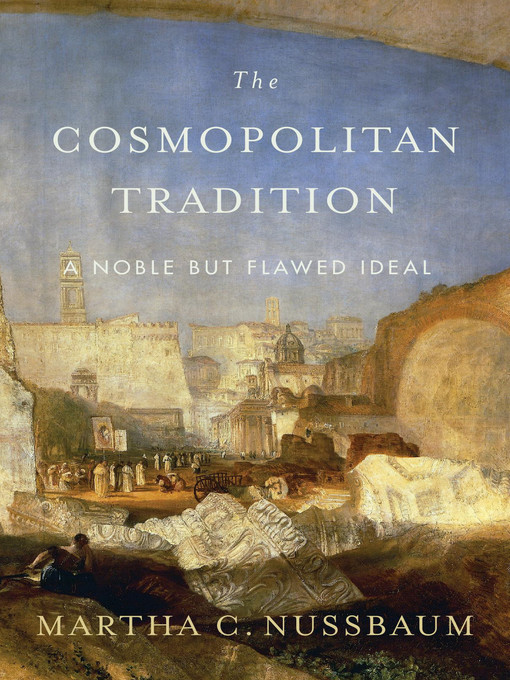"Profound, beautifully written, and inspiring. It proves that Nussbaum deserves her reputation as one of the greatest modern philosophers."
—Globe and Mail
"At a time of growing national chauvinism, Martha Nussbaum's excellent restatement of the cosmopolitan tradition is a welcome and much-needed contribution...Illuminating and thought-provoking."
—Times Higher Education
The cosmopolitan political tradition in Western thought begins with the Greek Cynic Diogenes, who, when asked where he came from, said he was a citizen of the world. Rather than declare his lineage, social class, or gender, he defined himself as a human being, implicitly asserting the equal worth of all human beings.
Martha Nussbaum pursues this "noble but flawed" vision and confronts its inherent tensions. The insight that politics ought to treat human beings both as equal and as having a worth beyond price is responsible for much that is fine in the modern Western political imagination. Yet given the global prevalence of material want, the conflicting beliefs of a pluralistic society, and the challenge of mass migration and asylum seekers, what political principles should we endorse? The Cosmopolitan Tradition urges us to focus on the humanity we share rather than on what divides us.
"Lucid and accessible...In an age of resurgent nationalism, a study of the idea and ideals of cosmopolitanism is remarkably timely."
—Ryan Patrick Hanley, Journal of the History of Philosophy
- Available now
- New eBook additions
- Most popular
- Try something different
- Popular Graphic Novels
- Popular Cookbooks
- Manga Series Starters
- Celebrate Disability Pride Month!
- See all ebooks collections
- Available now
- New audiobook additions
- Try something different
- Most popular
- Language Learning
- The Great Courses
- Celebrate Disability Pride Month!
- See all audiobooks collections
- Most Popular
- News & Politics
- Cooking & Food
- Celebrity
- Home & Garden
- Entertainment
- Health & Fitness
- Fashion
- Hobbies & Crafts
- Tech & Gaming
- Cars & Motorcycles
- Family & Parenting
- Sports
- See all magazines collections


